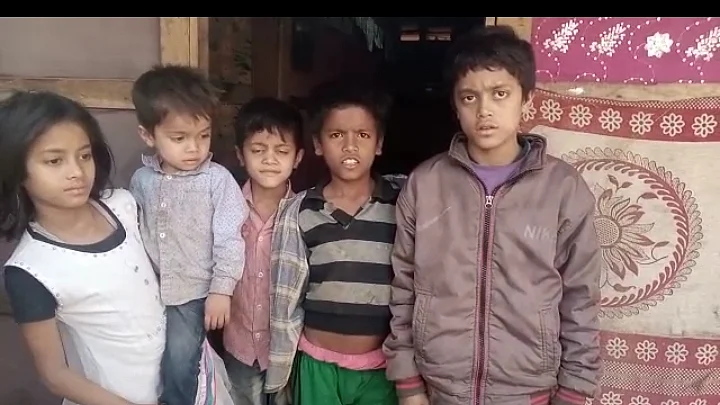Waiting for law and uniform policy for refugees
India has allowed Tibetan refugees to form a government in exile, Tamil refugees from Sri Lanka and refugees from Afghanistan to settle down but is in the process of deporting Rohingya back to Myanmar

Eight-year- old Jabul Hassan is trying hard to calm his two and a-half- year- old sister outside their shack. Lollipops and biscuits having failed to do the trick. Isma Jan has been bawling since her parents were detained and put in a "holding centre" in Hiranagal sub-jail in Kathua district of Jammu as the authorities identified them as "illegal Rohingya immigrants".
"She has not even slept since our parents failed to return from the stadium,” says a harassed Hassan.
Last Saturday, police summoned 40 people residing in a ghetto in Karyani Talab Narwal area of Jammu to the nearby MA stadium. While 19 of them including the parents of Hassan and Jan were detained, others were released. "For the last three days, we have been telling her they will return in the evening", says Hassan gravely, his maturity belying his age.
As many as 160 Rohingya ‘refugees’ living in 27 ghettoes across Jammu district have been collared by the police and put in "holding centers". According to officials, they have been detained under section 3(2) e of the Foreigners Act after they were called for "verification". Most of the refugee families say that they all have valid I-cards issued by the United Nations High Commissioner for Refugees (UNHCR), New Delhi.
After facing persecution by both the state and the majority community back home in Myanmar, tens of thousands Rohingya Muslims fled their country and took refuge in various countries including Bangladesh and India. According to Mushtaq Ahmad, a community leader of the refugees, around 5,000 Rohingyas have lived in Jammu for over a decade.
But the situation changed after 2014. Their refugee status was ignored by the Indian Government. In 2017, Kiran Rijiju, Union Minister of State for Home said, “As far as we are concerned, they are all illegal immigrants. They have no basis to live here. Anybody who is an illegal migrant will be deported".
In Jammu, a hostile political campaign against the Rohingya Muslims was launched in Februrary 2017 when Jammu and Kashmir Panthers Party put up hoardings in the city demanding the ouster of the refugees from the city. Prior to it, senior party leader Harsh Dev Singh along with his partymen hit the streets in Jammu to press for the deportation of Bangladeshi and Rohingya immigrants.
Salamat-ullah, a Rohingya activist, wryly says they are thankful for small mercies. “At least children of the detained bread winners have been left to fend for themselves,” he adds grimly. "Their children have been going through a traumatic time. They have nothing to eat. We are all poor and badly off, and are not even able to help each other", he says.
Nine-year-old Aleema has stopped crying. She stares vacantly into space and after much prodding mumbles that she is hungry and has had nothing to eat. Her mother Sajida, confides a refugee woman, is also pregnant.
Another Rohingya woman whose only son Abdul Ali was picked by the police said, " I have no one in the world except for my son. I have not heard from him since they took him away.”
If the UN has recognized their refugee status, they wonder why they are being treated as criminals. Unlike European countries and even Bangladesh which have treated refugees compassionately, Indian authorities have dealt with them with a heavy hand. This is possibly because India is not a signatory to the UN Refugee Convention or protocol. Indian law does not define who is a refugee and the Government since Independence has followed ad-hoc policies for refugees and asylum seekers.
While refugees from Tibet were allowed to form a government in exile and continue to earn their livelihood through trade and commerce, Tamil refugees from Sri Lanka and more recently Rohingya refugees from Myanmar have been subjected to severe restrictions and kept in detention centres. Afghan refugees are also treated differently.
Follow us on: Facebook, Twitter, Google News, Instagram
Join our official telegram channel (@nationalherald) and stay updated with the latest headlines
